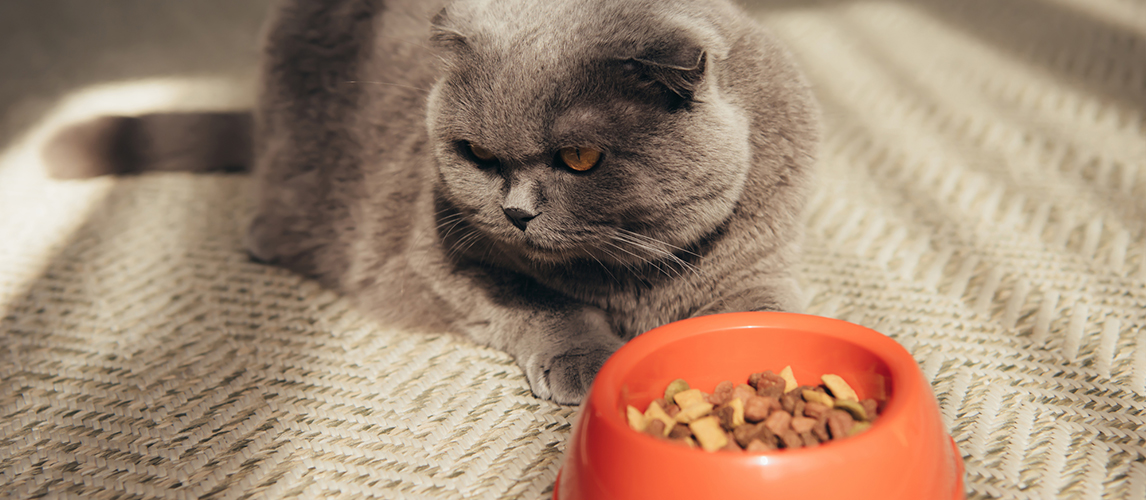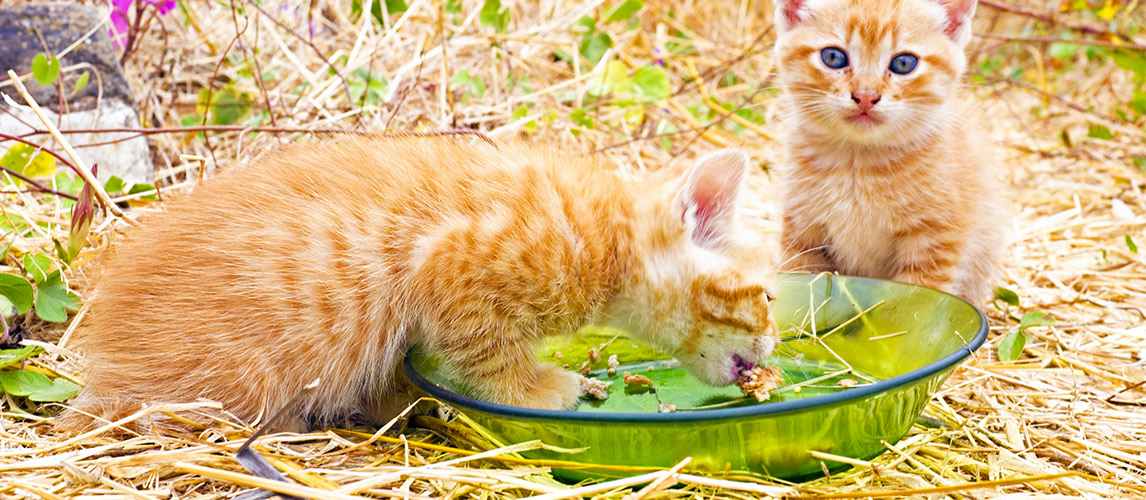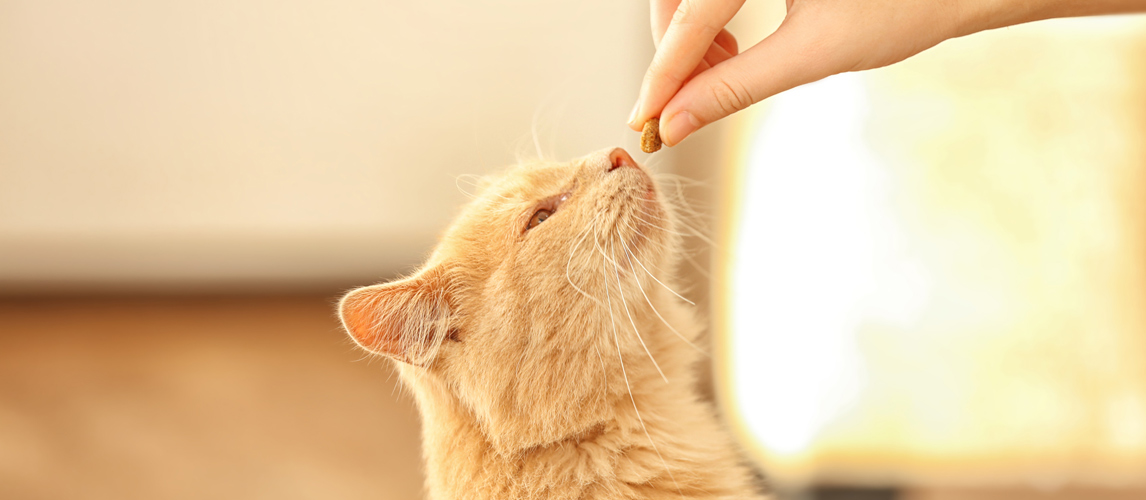You love your beloved cat like your own child and want to make sure he’s happy, comfortable and above all, healthy. As a kitty parent, you’ll know to take him directly to the vets if he shows signs of irritation or sickness. However, one thing that may go under the radar is overeating. You’re giving him the recommended amount of food, yet he’s still pining for more. His greediness may seem harmless, but there are actually several unpleasant underlying reasons why he might be begging for more food. Take a look at these common problems that may be causing your cat’s recent ravenousness.
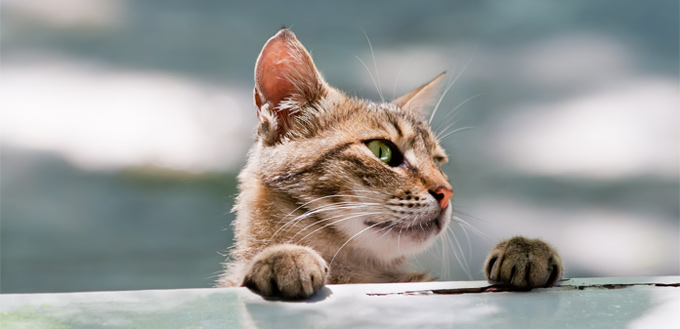
They Have Parasites
It could be time for a trip to the dreaded vets as there’s a chance your cat may have worms. These creepy little parasites live in your pet’s intestines and feed off their food, taking all the nutrition before they’ve had a chance to digest it. This inevitably leaves him grumpy, hungry and wanting more.
Most cats will have no symptoms of the infestation, however for severe cases, alongside his increased hunger, you might notice vomiting, a duller coat and even adult worms in his feces. They aren’t difficult to spot – look out for long, white, translucent string-like worms. Don’t be fooled if your cat’s belly looks tubby too, as roundworms can cause the stomach to swell.
There’s no need to stress over your precious kitty too much, roundworms are a very common ailment and do not cause huge health issues within animals unless they are left for long periods of time. They are easily treated by a pill you can get from your vet or sometimes over the counter at pet stores.
You May Also Like: Dewormers For Cats
You’re Giving Them the Wrong Food
Don’t be tempted to add another cupful to Mr Whiskerson’s bowl if he’s fussing for more, the answer may lie in the kind of food he’s being fed. Take note of the information on the packaging – for example, a senior, less active cat will require a smaller amount of energy than a youthful one, so be sure you are picking up the right variety for your cat’s needs.
Most wet cat foods tend to be more filling and flavourful than dry, so consider opting for this. And, because of the added quantity of moisture, it can help keep your cat hydrated which will aid in preventing issues such as urinary tract infections. Packed with nutrients and often more cost effective in the long-term than kibble, there are many wet food options guaranteed to keep your kitty’s belly full for longer.
They Are Simply Bored
Just like humans, cats can succumb to boredom and have even been known to suffer from depression. And, just like us, our feline friends are liable to eat when they feel fed up, even when they aren’t actually hungry. However there is no need to be concerned, there are plenty of things you can do to lift your kitty’s spirits.
Ensure that your cat has lots of stimulating toys to keep him entertained and set time aside to play with him. You could even serve his dinner in a puzzle bowl which will force him to eat slowly and engage his brain whilst chowing down. If you are in the position to do so, you could consider adopting a brand new friend for him from your local shelter. This will alleviate your cat’s loneliness and give a kitty in need a loving home!
They May Have an Underlying Health Issue
The problem may be more serious then just boredom and a bad diet. Constant eating could spell diabetes for your cat – this means that his body is not converting the sugars in his food to energy properly. You may also notice that your cat is drinking more frequently than usual. If your cat’s appetite is increasing yet he continues to lose weight, this could mean big trouble and you’ll definitely need to book in an appointment at the vets to get him the medication he needs. You should also switch his regular food to some of the best foods for diabetic cats.
Hyperthyroidism could also be the culprit. This is a condition where a cat’s metabolism burns calories at an abnormal rate and results in a lack of nutrition, leaving him hungry for more. This disease is most common in older cats, so be sure to keep an eye on your senior kitty’s eating habits to catch it early.
The other heartbreaking diagnosis could be that your cat is suffering from intestinal cancer. Signs of this will be severe weight loss coupled with a noticeable increase in appetite. Unfortunately, regardless of the amount of food he consumes, only a small portion of nutrition will be absorbed where it needs to go and the rest will be feeding the tumours, potentially exacerbating the problem.
If you suspect your cat may be unwell, make an appointment to see the vet as soon as possible to get him the necessary medical attention. If it turns out your cat does have a serious health problem, try not to worry too much. There are things that can be done to make his life as normal and as healthy as possible.
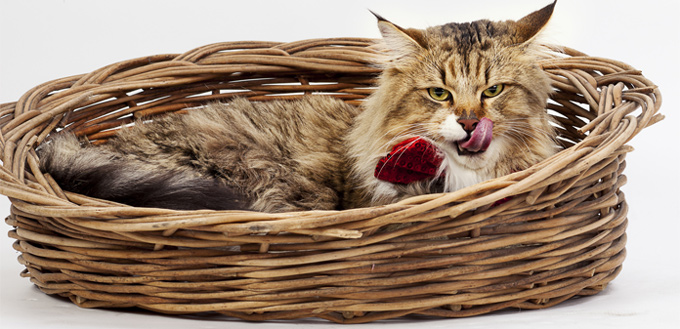
The Next Steps
If your moggy is feeling hungrier than usual, the first thing to do is get him to the vet’s office to rule out any nasty illnesses and get him treated for any ailments that could contributing to his increased appetite. Once he has a clean bill of health, your vet will be able to suggest the best course of action to get him back on track. The advice you’ll receive from a trained professional is invaluable and if you have reason to believe your cat may be sick, be sure to speak to your local vet to get any health issues sorted out. Hopefully, there’ll be nothing too serious to deal with and with the advice given, your much-loved cat will be back to his healthy, happy self in no time!
Sources:
- Dr. Mike Paul, DVM, Why Does My Cat Eat so Much (Polyphagia)?, Pet Health Network
- By Krista Williams, BSc, DVM, Feeding a Cat Who is a Glutton, VCA Hospitals


